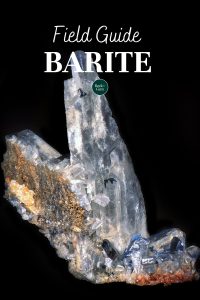
Mica Flake Production and Manufacturers for Various Industrial Applications
The Role of Mica Flake Manufacturers in Various Industries
Mica, a naturally occurring mineral, has been used for centuries due to its unique properties, including its glittering appearance, thermal stability, and electrical insulation capabilities. Among the various forms in which mica is processed for industrial use, mica flakes stand out for their versatility and range of applications. The role of mica flake manufacturers is crucial in harnessing the potential of this mineral across various sectors, from cosmetics to construction.
Understanding Mica Flakes
Mica flakes are produced by grinding natural mica into varying sizes and grades. These flakes can range from fine particles to larger pieces, depending on the intended applications. They retain their inherent qualities, such as resistance to heat and electricity, making them suitable for many industrial processes. Mica flakes are used in products like paints, plastics, rubber, cosmetics, and even in electrical insulation materials.
Applications Across Industries
1. Cosmetics and Personal Care One of the most notable uses of mica flakes is in the cosmetics industry. Mica is prized for its ability to provide a shimmering effect in makeup products like eyeshadows, highlighters, and lip glosses. The reflective quality of mica flakes adds a natural luminosity, making them a preferred ingredient among cosmetic formulators. Additionally, mica is non-toxic and safe for use on the skin, further enhancing its appeal in personal care formulations.
2. Construction Materials In the construction industry, mica flakes are employed as fillers and reinforcing agents in various materials. Their lightweight nature and resistance to moisture make them ideal for use in cement, plaster, and joint compounds. Additionally, mica’s insulating properties help improve the thermal efficiency of construction materials, contributing to energy savings in buildings.
3. Plastics and Composites Mica flakes are also used in the production of plastics and composites. When added to plastic formulations, mica enhances the mechanical properties of the final product, making them more durable and improving their resistance to wear and tear. This characteristic is particularly valuable in automotive and consumer goods manufacturing, where strength and longevity are essential.
4. Electrical Insulation Due to its excellent insulating properties, mica is widely used in electrical applications. Mica flakes are incorporated into insulation materials for electrical wiring and components, providing resistance against heat and electricity. This makes mica an essential material in the production of capacitors, transformers, and other electronic devices.
mica flake manufacturer

The Manufacturing Process
Mica flake manufacturing involves several steps that ensure the quality and purity of the final product. The process begins with the careful extraction of mica from mines, where it is then processed through crushing and grinding to achieve the desired flake size. Manufacturers employ rigorous quality control measures throughout the production cycle, including testing for particle size distribution, purity, and the absence of contaminants.
Moreover, advancements in technology have allowed mica flake manufacturers to improve efficiency and reduce environmental impact. Sustainable mining practices, recycling of waste materials, and innovative processing techniques are essential in promoting responsible sourcing and production of mica flakes.
Challenges and Opportunities
Despite its wide-ranging applications, the mica industry faces challenges, particularly related to ethical sourcing and environmental concerns. This has led to increased scrutiny of mica supply chains and a demand for transparency among manufacturers. Companies are now more focused on ensuring that their mica sources are sustainable and ethically mined, which presents opportunities for innovation in sourcing practices.
Furthermore, the growing demand for natural and environmentally friendly products offers mica flake manufacturers a chance to expand their market share. As industries increasingly seek sustainable options, the versatility and eco-friendly nature of mica make it a favorable choice for various applications.
Conclusion
Mica flake manufacturers play a pivotal role in various industries by providing high-quality mica flakes that enhance product performance and aesthetics. Their contributions are felt across cosmetics, construction, plastics, and electrical applications, making mica a valuable mineral in the modern industrial landscape. As the industry evolves, adherence to ethical practices and sustainability will be crucial in ensuring the future success of mica flake manufacturing.
Share
-
Premium Fly Ash Powder: Ideal Admixture for Strong ConcreteNewsAug.07,2025
-
Premium Pine Bark Mulch: Nuggets & Shredded StylesNewsAug.06,2025
-
Premium Kaolin Powder | High-Purity Mineral SolutionNewsAug.05,2025
-
Premium Glass Sand Solutions | High Purity SupplyNewsAug.03,2025
-
Natural Premium Bentonite Cat Litter - Superior ClumpingNewsJul.31,2025
-
Premium Resin Coated Sand - High Heat Resistance CastingNewsJul.31,2025






